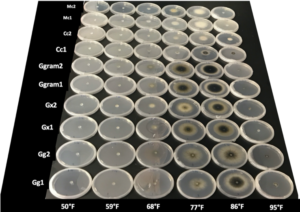
Too Early for Take-All Root Rot Apps?
Written by Cameron Stephens, Ph.D. candidate under the direction of Dr. Jim Kerns and Dr. Travis Gannon Take-all root rot …



El inglés es el idioma de control de esta página. En la medida en que haya algún conflicto entre la traducción al inglés y la traducción, el inglés prevalece.
Al hacer clic en el enlace de traducción se activa un servicio de traducción gratuito para convertir la página al español. Al igual que con cualquier traducción por Internet, la conversión no es sensible al contexto y puede que no traduzca el texto en su significado original. NC State Extension no garantiza la exactitud del texto traducido. Por favor, tenga en cuenta que algunas aplicaciones y/o servicios pueden no funcionar como se espera cuando se traducen.
Inglês é o idioma de controle desta página. Na medida que haja algum conflito entre o texto original em Inglês e a tradução, o Inglês prevalece.
Ao clicar no link de tradução, um serviço gratuito de tradução será ativado para converter a página para o Português. Como em qualquer tradução pela internet, a conversão não é sensivel ao contexto e pode não ocorrer a tradução para o significado orginal. O serviço de Extensão da Carolina do Norte (NC State Extension) não garante a exatidão do texto traduzido. Por favor, observe que algumas funções ou serviços podem não funcionar como esperado após a tradução.
English is the controlling language of this page. To the extent there is any conflict between the English text and the translation, English controls.
Clicking on the translation link activates a free translation service to convert the page to Spanish. As with any Internet translation, the conversion is not context-sensitive and may not translate the text to its original meaning. NC State Extension does not guarantee the accuracy of the translated text. Please note that some applications and/or services may not function as expected when translated.
Collapse ▲
Written by Cameron Stephens, Ph.D. candidate under the direction of Dr. Jim Kerns and Dr. Travis Gannon Take-all root rot …
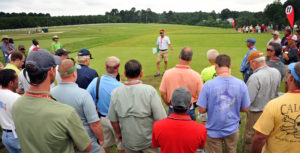
Registration is available for the second of three virtual field days presented by the turf program at NC State …
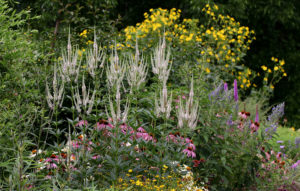
Pollinator Paradise is a Demonstration Garden created by the North Carolina Cooperative Extension, Chatham County Center. Agriculture Agent Debbie Roos …

6/30/2020 – We have been a little quiet online lately as our team is learning how to manage our …
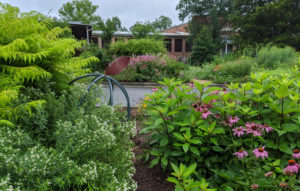
Pollinator Paradise is a Demonstration Garden created by the North Carolina Cooperative Extension, Chatham County Center. Agriculture Agent Debbie …
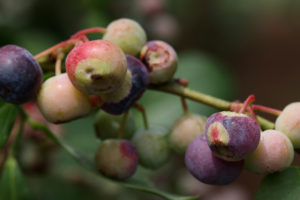
I recently visited a small Chatham County blueberry farm and found some of the bushes were infected with Exobasidium, …

The Environmental Protection Agency (EPA) recognized the Eastern Band of Cherokee Indians with the regional 2015 EPA Rain Catcher …
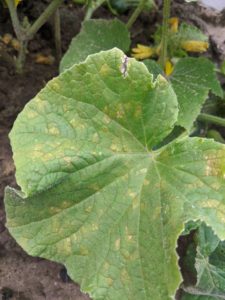
Written by Lina Quesada-Ocampo and Brandon Parker Cucumber downy mildew, caused by the oomycete pathogen Pseudoperonospora cubensis, has been found …
COVID-19 Viticulture Update 6/13/2020 New Today: As the restaurants and other businesses are opening in North Carolina, the “Count On Me …

The NC State University Strawberry Breeding program has put all the yield data from our cultivar trials from 2015-2020 …
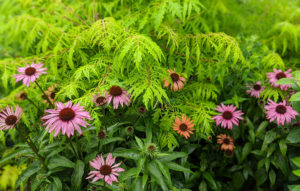
Pollinator Paradise is a Demonstration Garden created by the North Carolina Cooperative Extension, Chatham County Center. Agriculture Agent Debbie …
COVID-19 Viticulture Update 06/05/2020 New Today: Government Resources: USDA has announced crops that will be eligible for assistance through the Coronavirus Food …
COVID-19 Farmers Update 06/05/2020 New today: Government Resources: USDA has announced crops that will be eligible for assistance through the Coronavirus Food …

This week I have seen a couple species of lace bugs active on landscape plants. Yes, there are over …
How did COVID-19 impact NC Agriculture in April 2020? We have surveyed 157 farms and agritourism businesses and the …

For the past several weeks I have noticed damage to the leaves of my roses. Each year this happens and …

This announcement was updated Thursday, December 3rd, 2020 from the previous versions The NC State Plant Disease and Insect Clinic …

False oleander scale, Pseudaulacaspis cockerelli, is a tropical and subtropical pest originally from China. False oleander scale is common throughout …

Imported willow leaf beetle (Plagiodera versicolor) are common on willows in landscapes and natural areas. Most of year adults and …
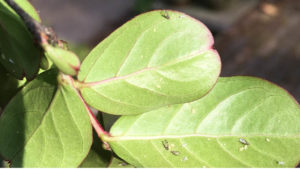
Crape myrtles are among the most commonly planted trees in the Southeast. The two main pests are crape myrtle …
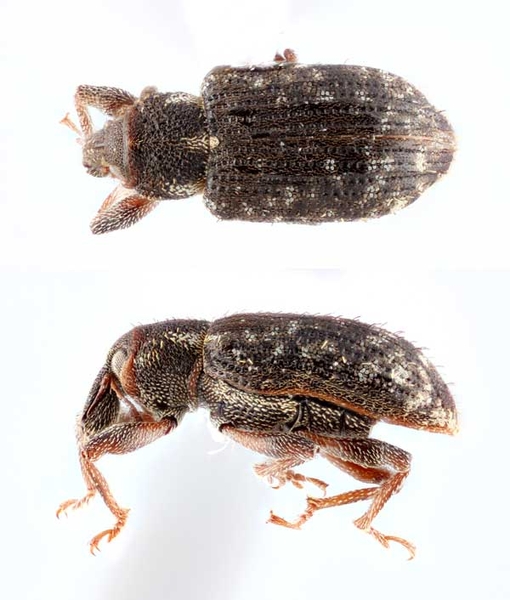
This field guide and linked resources provide information on basic insect identification, sampling methods, monitoring, …
Vineyard establishment involves careful planning, thorough site preparation, vineyard design, planting, and trellis construction. Unlike …
Growing Chardonnay grapes, the number one vinifera variety grown in North Carolina, can be a …

Crape Myrtle Bark Scale (CMBS), Acanthococcus lagerstroemiae, is an exotic insect pest that feeds only …
New and current grape growers will find practical information on site appraisal, establishment, and operation …
Grapes grown in North Carolina are sometimes exposed to unfavorable climatic conditions and biological pests …

This factsheet discusses symptoms and control of several leaf diseases common in North Carolina blueberry …

This factsheet describes the biology of the cane lace bug or bamboo lace bug, Leptodictya …